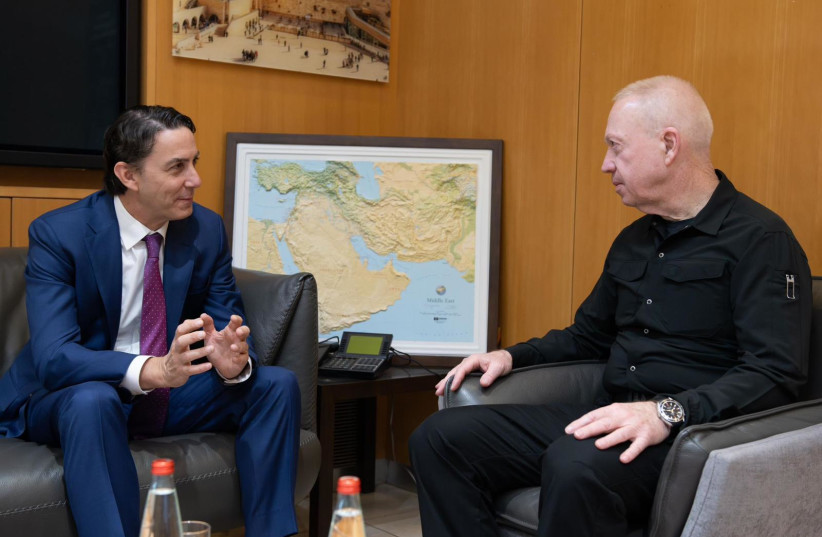The Lebanese newspaper Al-Akhbar, which is affiliated with Hezbollah, reported on Monday that American sources close to the Pentagon said a military support meeting planned to take place in Paris last month was canceled due to disagreements. According to the newspaper, other reasons for the cancellation were the lack of significant changes to political power in Lebanon and continued disagreements regarding the appointment of a Lebanese President.
International authorities, including the United States and France, are trying to orchestrate a ceasefire agreement between the terrorist organization Hezbollah and Israel. The agreement will be based on United Nations Security Council Resolution 1701, which was intended to resolve the 2006 Lebanon War and push Hezbollah terrorists away from the border.
According to sources, the ball is in the hands of Amos Hochstein, the special envoy of United States President Joe Biden to the Middle East. Hochstein is working to implement a strategy to "reduce conflicts" along the border, in accordance with the reduction of operations in the Gaza Strip.
Tensions continue on the Northern border
The sources stated that Washington is not interested in increasing its cooperation with France regarding the dispute between Lebanon and Israel and that it is measuring its expectations about what can be achieved.
Israel is taking steps to prevent the recurrence of fighting on the Northern border and ensure the safe return of residents to the area.

According to the report, Washington hopes that the Lebanese government will agree to proposals to increase the deployment of the Lebanese army to Lebanon's southern border and believes a new agreement regarding the army's role may increase the level of material and logistical support from the US.
The sources said that the US is well aware that the decision to deploy the Lebanese army to the southern border is political and was made without Hezbollah's approval. Therefore, the US will not risk significant investment in the army if plans to adapt security measures in the south fail.
